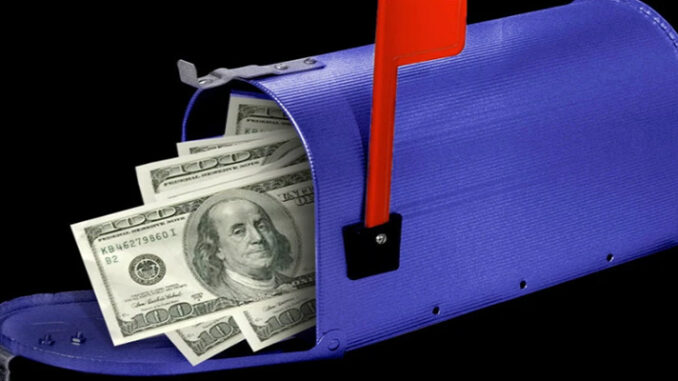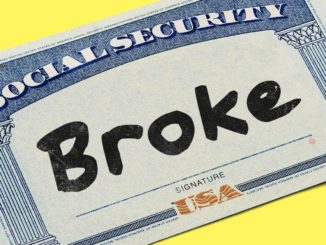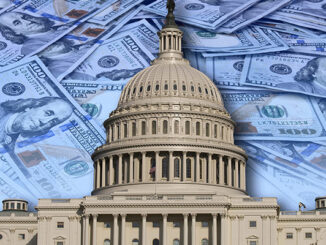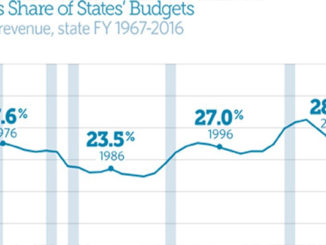
A consensus is building around the simple expedient of sending cash to every American. Politicians need to move quickly.
by The Editorial Board, New York Times
The United States has never experienced anything quite like the economic disjuncture caused by the spread of the new coronavirus. Airports and malls are empty. Restaurants and movie theaters are closed. The collapse is happening so fast it isn’t visible yet in standard data like the unemployment rate, but startling facts are piling up.
OpenTable, a restaurant reservation website, reported 56 percent fewer people ate at its member restaurants on Monday compared with the same day last year. In a poll, almost one fifth of the respondents said they were working fewer hours or had lost their jobs.
The economy tends to slide into recession. This is free-fall.
The crisis requires an urgent response from the federal government, and the most important step is simple: Send $2,000 to every American, immediately.
People need money to pay the rent, the mortgage, the utility bills. Handing out money also would encourage consumer spending, which is the primary form of economic activity in this country. And that, in turn, would help to keep small businesses open, and workers employed.
Politicians are coalescing rapidly around the benefits of handing out money. Senator Mitt Romney proposed Monday to send everyone $1,000. A group of six senators upped the ante on Tuesday, proposing to send everyone an initial $2,000 and as much as $4,500 by the end of the year.
The first round of payments would cost about $660 billion, equal to roughly 3 percent of the economy’s total output last year — big enough to offset the severe drop in economic activity that forecasters are predicting in the second quarter of the year. The government would then make additional quarterly payments until the unemployment rate subsided.
The Trump administration, which tried unsuccessfully to rally support for a payroll tax cut — a plan that, among other problems, would help only people with jobs — said Tuesday that it was also willing to support cash payments.
One downside to blanket distribution is that some people don’t need the money. There are sensible ways of correcting for this. The government could require people to pay income taxes on the money: Those with higher incomes would pay higher rates and, as an added benefit, some of the money would flow to state and local governments, which are likely to experience sharp drops in revenue. Alternatively, the federal government could use a sliding scale: less money for those with higher incomes. But there are benefits to universal distribution, too. The government can’t anticipate who is going to lose their jobs.
A drawback to sending money is that it takes time. Congress authorized a similar plan in February 2008 but the first checks didn’t go out for months, in late April. But this, too, can be mitigated by delivering more aid through existing safety net programs, which are devised to help those in the greatest need, and by limiting the potential consequences, for example by imposing a moratorium on tenant evictions and foreclosures.
One concern that ought to be discarded is the strange idea that the federal government is running low on money. Former Vice President Joe Biden, the front-runner for the Democratic presidential nomination, suggested Sunday that the Trump administration’s 2017 tax cuts had exhausted the government’s fiscal capacity. Those tax cuts were a terrible misuse of public resources, but the historically low level of interest rates on federal debt suggests lenders are eager to shovel money into the government’s coffers. And this is not the time to worry about the long-term cost of the federal debt.
Giving money to people is just one component of an effective fiscal response to the pandemic. The first step, underway but far from complete, is protecting public health. The failures of the federal response to the widening outbreak, particularly the continuing absence of large-scale testing, are exacerbating the economic damage.
In countries with effective testing, like South Korea, it’s easier to limit economic disruptions. Blue Bottle Coffee, a Nestlé subsidiary, said Sunday that it was shutting its American locations but would keep its cafes open in Japan and South Korea because those countries have “extensive testing and medical support clearly in place.” In the United States, meanwhile, state and local authorities have been left with few options beyond closing businesses and asking residents to stay in their homes.
Congress approved an initial dose of $8.3 billion for public health measures, including money for masks and other supplies; for medical research; and for state and local public health departments. A second bill, which passed the House and is awaiting Senate consideration, would expand spending on safety net programs, including unemployment insurance, health insurance and food stamps.
It also includes a deeply flawed plan to require some employers to offer paid sick leave to workers, at government expense. That program excludes employers with more than 500 employees, a mind-boggling loophole that encompasses 54 percent of the private work force. The Senate would be wise to rewrite the legislation to provide 10 days of emergency paid sick leave to all workers at federal expense.
The second step is containing the economic damage, which includes sending out checks to people. The government also needs to provide help to businesses.
The Federal Reserve said Tuesday that it would backstop the market in short-term corporate borrowing, known as commercial paper, as part of its efforts to hold down borrowing costs. That will mostly help larger companies, but it is smaller companies that face the most acute threats to survival. Companies that sell services are in particular jeopardy.
In a normal recovery, people start making purchases they had deferred. They get the new car, the new phone, the new sunglasses. But people are less likely to make up missed meals or missed experiences. The challenge confronting policymakers is to preserve businesses — and jobs — that were viable before the crisis and can be viable in the aftermath.
The government should make low-interest loans readily available to smaller businesses but with explicit requirements for maintaining employment. Denmark, for example, is offering to cover 75 percent of the payroll at troubled companies — so long as recipients maintain those jobs.
Congress is rightly warier of proposals to bail out big companies, like casinos, cruise ships or airlines. Any such bailouts, which the Trump administration appears eager to orchestrate, must include conditions well beyond preserving jobs. Delta, American, Southwest and United, which booked billions of dollars in profits as a result of the 2017 tax cut, are low on cash in part because they spent $39 billion over the past five years repurchasing shares of their own stock. Boeing, also begging for a bailout, spent $35 billion on its shares. (Buybacks benefit investors by raising the value of the remaining shares.)
It is incumbent upon policymakers to ensure that airline profits during the next economic expansion are distributed more equitably. Companies must be barred from shoveling federal aid out the back door in the form of executive bonuses, dividend payments or stock buybacks. Senator Elizabeth Warren has suggested, quite reasonably, that airlines or other big companies that receive government bailouts should be required to start paying a $15 minimum wage within a year after the end of the national emergency.
It’s also not too early for Congress to lay the groundwork for a longer-term plan to support economic growth after the pandemic is over. Even the best crisis measures are not likely to avert a sharp increase in unemployment, or the destruction of businesses.
This is an opportune moment for Congress to fund an ambitious program of infrastructure works, taking advantage of low borrowing costs to finance repairs to roads and bridges and mass transportation systems; the overhaul of the nation’s electric grid, to accommodate environmentally friendly power generation; the removal of lead pipes from municipal water systems.
The federal response to the 2008 economic crisis was remarkably successful in preserving American corporations. That was critical, but it was not good enough. This time, the government needs to do a better job of helping individual Americans to weather the crisis.



